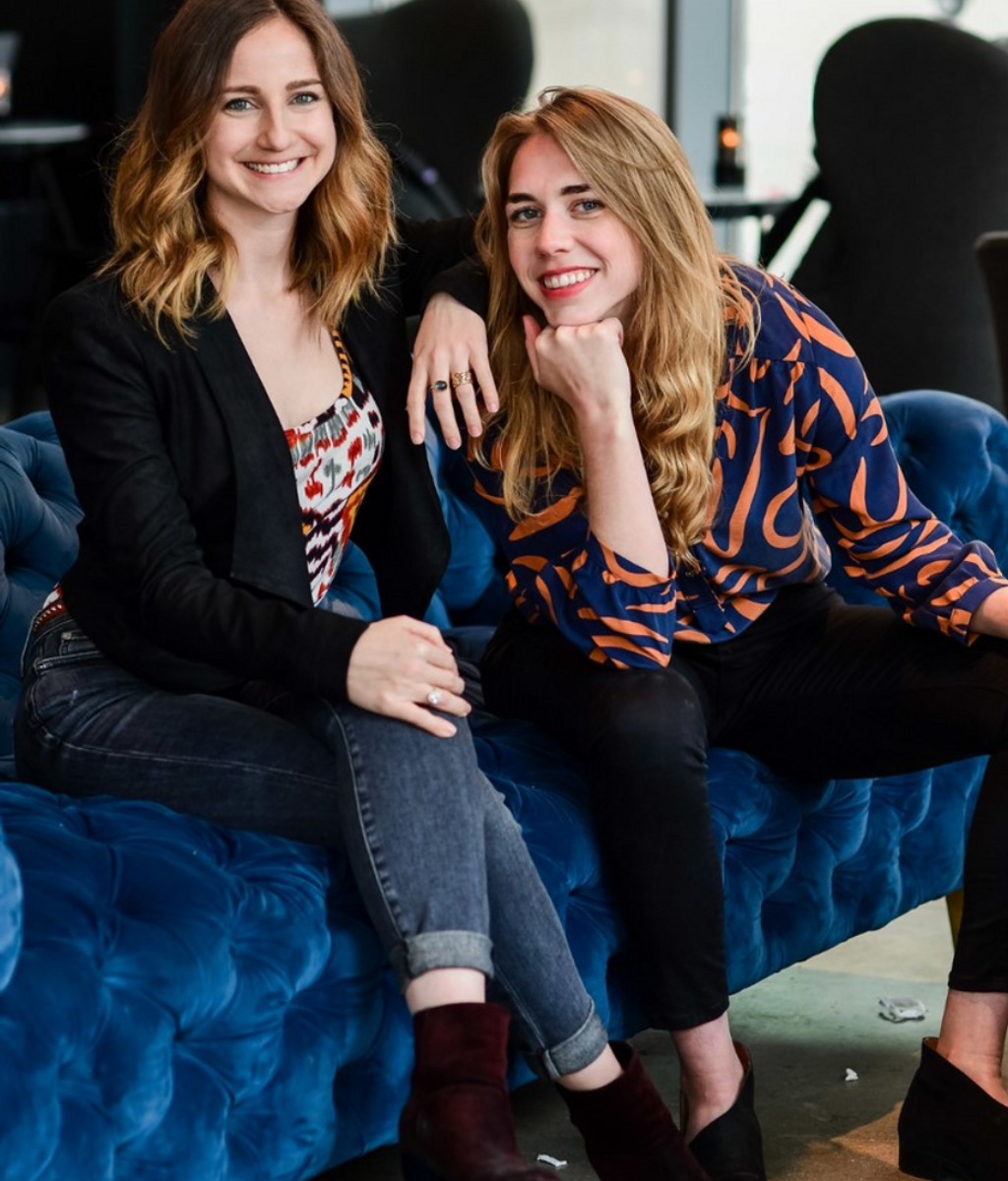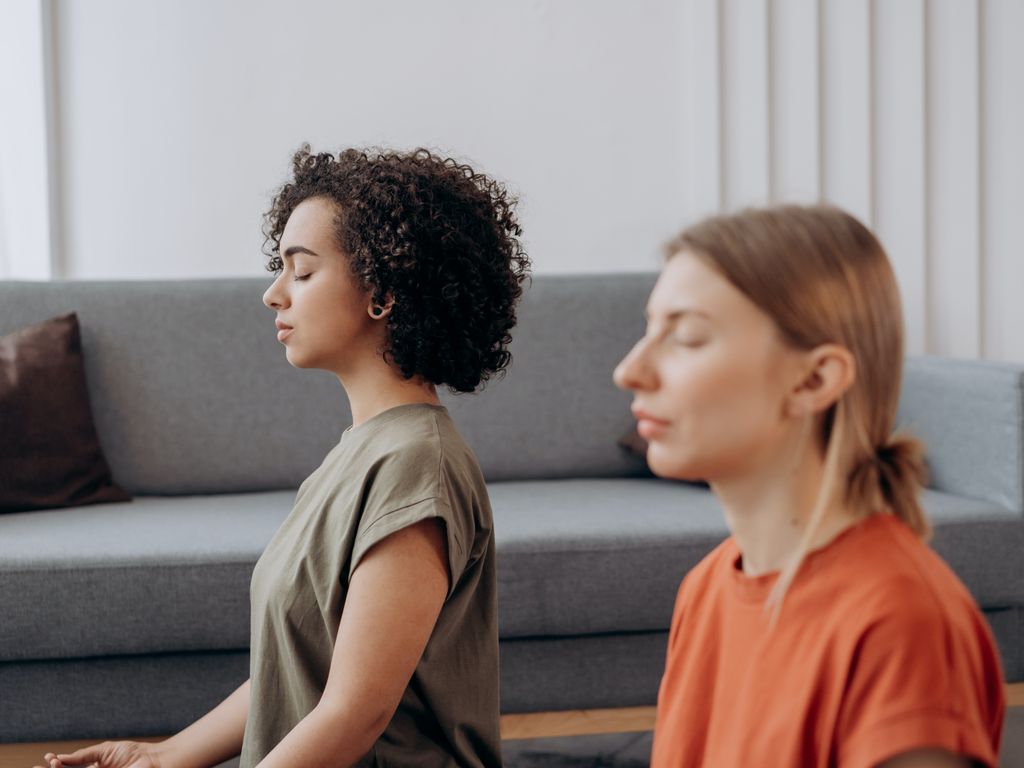5 Mins Read
California-based company Coa is betting that you will soon want to join a gym for your mental health, a safe place and space for you to partake in online emotional fitness classes and to help cope with the increasing loneliness that the global pandemic has brought on for millions of people, not to mention all the social and political anxiety we all deal with on a daily basis.
Founded by Alexa Meyer and Dr. Emily Anhalt, Coa is on a mission to take the small-group fitness culture, apply it to mental health, and does not offer individuals a replacement for therapy but rather a ‘therapeutic experience’ that will help them deal with the pressures they face in their daily lives.
The foundation of the company’s programs are based on Anhalt’s research-driven method around the 7 Traits of Emotional Fitness: self-awareness, empathy, play, curiosity, resilience, mindfulness, and communication.
During onboarding, the company assesses individuals through careful evaluation, and members are placed into a series of classes guided by licensed therapists that fuse lecture-style teaching with breakout sessions to encourage conversations. In California, Coa also has a 1:1: therapist matchmaking service, along with hosting private classes and free community classes.
Anhalt shared more about what she means by emotional fitness in a recent interview: “Beyond having good coping mechanisms to deal with anxiety, depression, self-doubt and a series of curveballs that are completely out of your control, a founder must be able to form and maintain good relationships. You must be able to communicate effectively with co-founders, investors and employees. Studies show that 72% of entrepreneurs have mental health concerns — but I very much doubt that a similar proportion of founders are currently in therapy. And far too often we see the consequences of a failure to do that work when startups implode, whether it’s due to a toxic work culture, co-founder conflict, or deep-seated leadership challenges.”
Meyer, a veteran of Interbrand and the analytics startup Keen IO, said that they wanted to support individuals beyond the group setting and hence started one on one sessions. “It’s pretty impossible to replace the magic that can happen between two people meeting consistently every single week and diving deep. Our problem that we worked on solving is essentially how do you support people and go deep without asking them to go farther than it’s safe to do in a group setting.”

Studies show that 72% of entrepreneurs have mental health concerns — but I very much doubt that a similar proportion of founders are currently in therapy. And far too often we see the consequences of a failure to do that work when startups implode, whether it’s due to a toxic work culture, co-founder conflict, or deep-seated leadership challenges
Dr. Emily Anhalt, co-founder of Coa
In an interview with TechCrunch, Anhalt shared that the small-group format requires people to offer up a certain amount of vulnerability during the classes.“We were warned that people do not want to talk about mental health and don’t want anyone to know they’re signing up for a class. We’ve seen the complete opposite with our community.”
Anhalt added that the group therapy does not legally require participants to ensure confidentiality, but instead the participants follow a shared understanding that privacy is an important asset. “Confidentiality and clinical integrity is everything. So we take measures far beyond what we’re legally and ethically required to do.”
The measures include a dedicated person who handles patient to therapist information, and there are no post-therapy surveys or analytics.
Coa really aligns with everything I’m about. It’s a proactive approach to mental fitness. We’re creating a safe place to talk about these tough subjects around mental health and mental wellness, in a group setting. There is nothing like this out there. This has never existed before. It’s the first gym for mental health, which makes it super exciting to be a part of
Kevin Love, professional basketball player and a Coa user
Coa has conducted pop-up gyms over last two years in New York, San Francisco, L.A., Vancouver, and Toronto, where it privately offers its services through leaders at Asana, GitHub, Silicon Valley Bank and Spotify.
Meyer concluded that the reason behind launching pop-up gyms was to make mental health visible. “We want the gym for mental health to be visible and accessible. That way, when people walk around on the street, they see that there are places to work on their emotional health, the same way they work on their physical health.”
The company raised US$3 million in seed funding by a round led by Crosslink Ventures, with participation from Red Sea Ventures and Alpaca VC. Other investors include Neil Parikh (the founder of Casper) and professional basketball player Kevin Love.
In a piece for The Players’ Tribune, Love shared his own experience with Coa. “Coa aligns with everything I’m about. It’s a proactive approach to mental fitness. We’re creating a safe place to talk about these tough subjects around mental health and mental wellness, in a group setting. There is nothing like this out there. This has never existed before. It’s the first gym for mental health, which makes it super exciting to be a part of.”
The drop-in classes start at US$25 and by offering free community classes and subsidized programs for employees by partnering with employers, Coa plans to expand its reach.
Going ahead, they plan to broaden the curriculum to include more demographics at various price points. At the moment, sticking to online classes, over 3,500 people are already on the waitlist.
The Global Wellness Institute (GWI), a nonprofit organisation providing research and education on health and wellness worldwide released a mental wellness report that highlighted the explosion of the global mental wellness economy to a market worth more than US$120 billion.
If you’re facing anxiety and stress, here are three simple breathing techniques that will help calm you and to further uplift your spirits especially during the ongoing pandemic, here is another list that includes a bunch of activities like growing plants, reading, listening to peaceful music and many more for you to choose from.
Lead image courtesy of Mikhail Nilov/Pexels.



